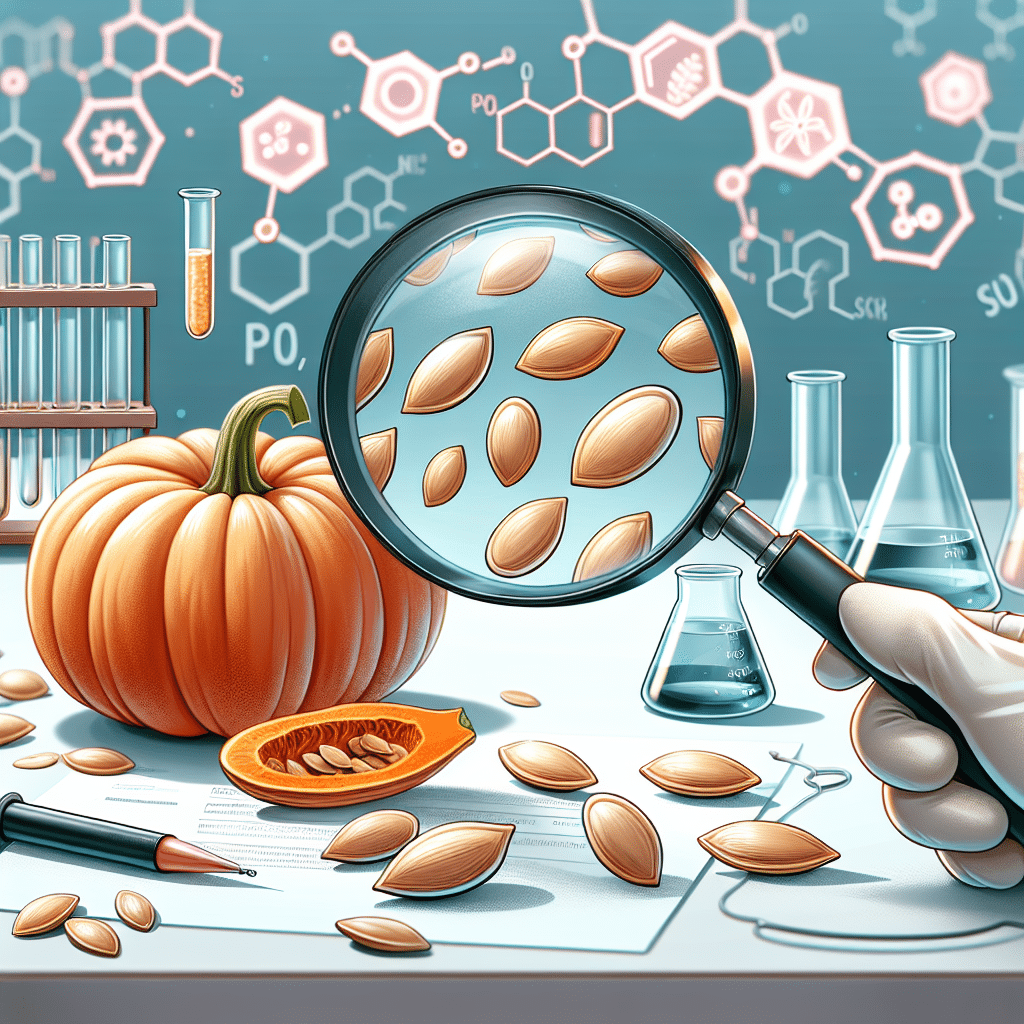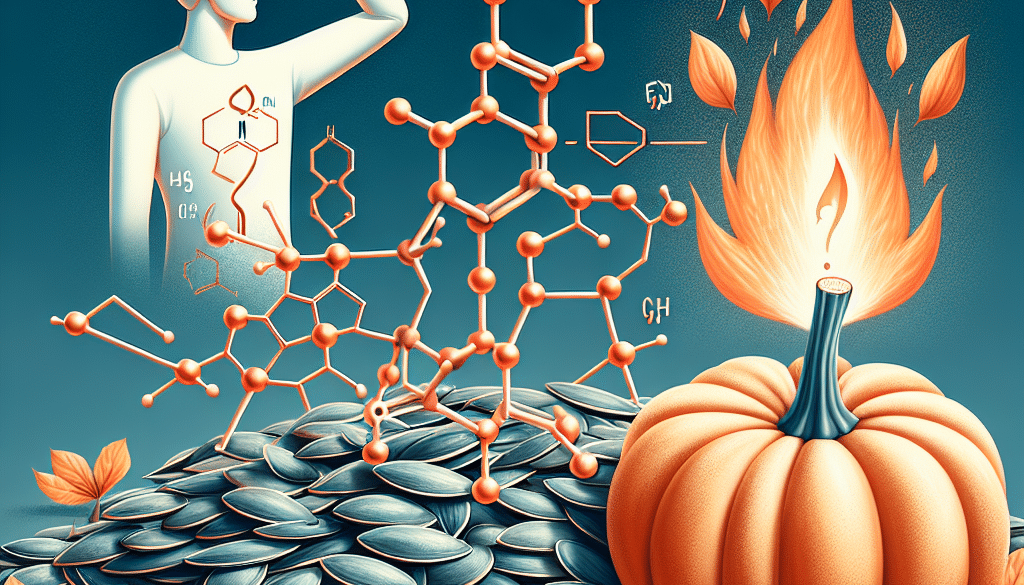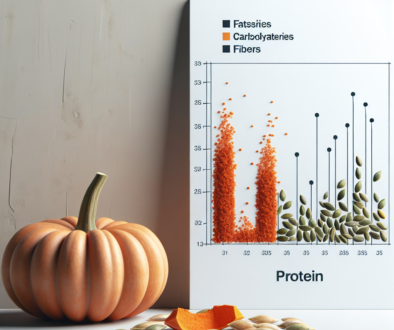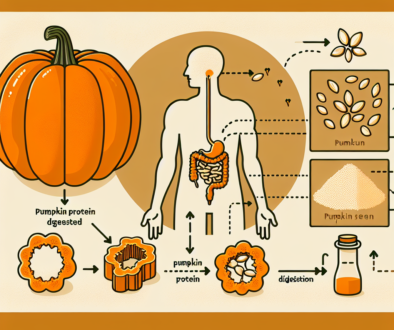Is Pumpkin Seed Protein Inflammatory?
-
Table of Contents
- Pumpkin Seed Protein: An In-Depth Look at Its Inflammatory Properties
- Understanding Inflammation and Its Impact on Health
- The Nutritional Profile of Pumpkin Seed Protein
- Is Pumpkin Seed Protein Anti-Inflammatory?
- Research Findings on Pumpkin Seed Protein and Inflammation
- Comparing Pumpkin Seed Protein to Other Plant Proteins
- Case Studies and Anecdotal Evidence
- Conclusion: The Verdict on Pumpkin Seed Protein and Inflammation
- Discover ETprotein’s Premium Pumpkin Seed Protein
Pumpkin Seed Protein: An In-Depth Look at Its Inflammatory Properties

Protein supplements have become a staple in the diets of health enthusiasts, athletes, and those looking for plant-based alternatives to animal proteins. Among the plethora of options available, pumpkin seed protein has emerged as a popular choice. However, with the rise in popularity comes the question: Is pumpkin seed protein inflammatory? This article delves into the science behind pumpkin seed protein and its effects on inflammation.
Understanding Inflammation and Its Impact on Health
Inflammation is the body’s natural response to protect itself against harm. There are two types of inflammation: acute and chronic. Acute inflammation is the immediate, short-term response to an injury or infection, which is essential for healing. Chronic inflammation, on the other hand, can lead to various health issues, including heart disease, diabetes, and arthritis.
The Nutritional Profile of Pumpkin Seed Protein
Pumpkin seeds, also known as pepitas, are rich in nutrients and have been consumed for their health benefits for centuries. They are an excellent source of protein, particularly for those following a vegetarian or vegan diet. Pumpkin seed protein is derived from these nutrient-dense seeds and is typically produced by cold-pressing the seeds to remove the oil, followed by grinding the remaining material into a powder.
- High in antioxidants
- Rich in magnesium and zinc
- Contains heart-healthy fats
- Good source of dietary fiber
Is Pumpkin Seed Protein Anti-Inflammatory?
Several studies have investigated the anti-inflammatory properties of pumpkin seeds and their derivatives. The high antioxidant content, including vitamin E and carotenoids, contributes to the anti-inflammatory effects of pumpkin seed protein. These antioxidants help neutralize free radicals, which can cause oxidative stress and inflammation in the body.
Moreover, pumpkin seeds contain omega-3 and omega-6 fatty acids, which are known for their anti-inflammatory properties. The presence of these healthy fats in pumpkin seed protein can potentially contribute to reducing inflammation.
Research Findings on Pumpkin Seed Protein and Inflammation
Research has shown that pumpkin seed oil, which contains many of the same beneficial compounds as pumpkin seed protein, exhibits anti-inflammatory effects. For example, a study published in the “Journal of Traditional and Complementary Medicine” found that pumpkin seed oil reduced inflammation in rats with arthritis.
Another study in the “Journal of Food Science and Technology” reported that peptides derived from pumpkin seeds had anti-inflammatory effects in laboratory tests. These peptides are also present in pumpkin seed protein, suggesting that the protein could have similar benefits.
Comparing Pumpkin Seed Protein to Other Plant Proteins
When compared to other plant-based proteins, such as soy or wheat, pumpkin seed protein has distinct advantages. It is naturally gluten-free and hypoallergenic, making it suitable for individuals with gluten sensitivities or allergies to common protein sources. Additionally, pumpkin seed protein is typically easier to digest and is less likely to cause bloating or discomfort.
Case Studies and Anecdotal Evidence
While scientific research provides valuable insights, anecdotal evidence from individuals who have incorporated pumpkin seed protein into their diets also supports its anti-inflammatory benefits. Many users report reduced joint pain and improved recovery times after exercise, which can be indicators of decreased inflammation.
Conclusion: The Verdict on Pumpkin Seed Protein and Inflammation
In conclusion, the evidence suggests that pumpkin seed protein is not inflammatory; in fact, it may help combat inflammation due to its rich nutrient profile and anti-inflammatory compounds. Its high antioxidant content, along with healthy fats and anti-inflammatory peptides, make pumpkin seed protein a beneficial addition to any diet, especially for those seeking plant-based protein sources.
Key takeaways include:
- Pumpkin seed protein is rich in nutrients and antioxidants that may reduce inflammation.
- It contains healthy fats like omega-3 and omega-6 fatty acids, which are known for their anti-inflammatory properties.
- Scientific studies and anecdotal evidence support the anti-inflammatory benefits of pumpkin seed protein.
- It is a suitable protein source for those with allergies or sensitivities to common plant proteins.
Discover ETprotein’s Premium Pumpkin Seed Protein
If you’re looking to incorporate high-quality pumpkin seed protein into your diet, ETprotein offers an exceptional product that stands out in the market. Their pumpkin seed protein is characterized by its neutral taste, non-GMO, and allergen-free attributes, ensuring that you receive a pure and natural supplement to support your health and wellness goals.
ETprotein’s commitment to quality and customer satisfaction makes them a top choice for individuals and businesses seeking reliable protein sources. Whether you’re formulating a new health product or simply looking to enhance your personal nutrition, ETprotein’s pumpkin seed protein is an excellent choice.
About ETprotein:
ETprotein, a reputable protein and L-(+)-Ergothioneine (EGT) Chinese factory manufacturer and supplier, is renowned for producing, stocking, exporting, and delivering the highest quality organic bulk vegan proteins and L-(+)-Ergothioneine. They include Organic rice protein, clear rice protein, pea protein, clear pea protein, watermelon seed protein, pumpkin seed protein, sunflower seed protein, mung bean protein, peanut protein, and L-(+)-Ergothioneine EGT Pharmaceutical grade, L-(+)-Ergothioneine EGT food grade, L-(+)-Ergothioneine EGT cosmetic grade, L-(+)-Ergothioneine EGT reference grade and L-(+)-Ergothioneine EGT standard. Their offerings, characterized by a neutral taste, non-GMO, allergen-free attributes, with L-(+)-Ergothioneine purity over 98%, 99%, cater to a diverse range of industries. They serve nutraceutical, pharmaceutical, cosmeceutical, veterinary, as well as food and beverage finished product distributors, traders, and manufacturers across Europe, USA, Canada, Australia, Thailand, Japan, Korea, Brazil, and Chile, among others.
ETprotein specialization includes exporting and delivering tailor-made protein powder and finished nutritional supplements. Their extensive product range covers sectors like Food and Beverage, Sports Nutrition, Weight Management, Dietary Supplements, Health and Wellness Products, and Infant Formula, ensuring comprehensive solutions to meet all your protein needs.
As a trusted company by leading global food and beverage brands and Fortune 500 companies, ETprotein reinforces China’s reputation in the global arena. For more information or to sample their products, please contact them and email sales(at)ETprotein.com today.














